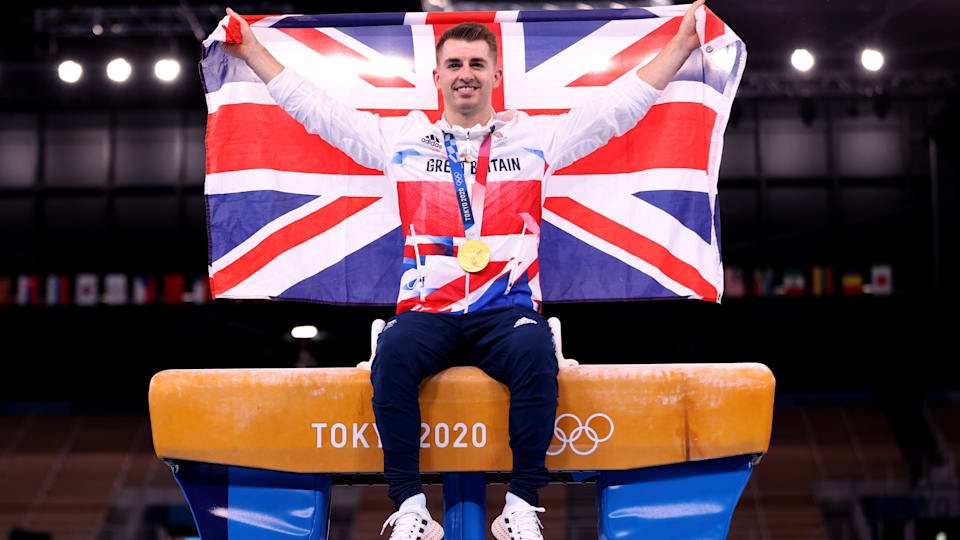Inspired by his daughter, Max Whitlock looks toward Paris 2024
The two-time Olympic champion on pommel horse says a fourth Games may be in his future: “My daughter [Willow] is a huge motivation to me,” Whitlock told Olympics.com.

The most decorated gymnast on the pommel horse has no plans on stopping yet.
Team GB’s Max Whitlock, who owns back-to-back Olympic titles on the event in addition to three world titles and two European wins, says he’s already looking ahead to Paris 2024.
He’ll take a new inspiration into training for what would be his fourth Olympic Games: his two-and-a-half-year-old daughter Willow.
“My daughter is a huge motivation to me,” Whitlock told Olympics.com. “It's huge motivation for me to kind of go on to Paris. I would love for Willow to come out and see what I do.
“That’s a huge motivation for me to continue.”
Whitlock: Dealing with huge pressure at Tokyo 2020
Whitlock has already made history in gymnastics, winning his country’s first-ever Olympic gold medals in the sport at Rio 2016 when he captured floor exercise and pommel horse gold in one day.
That success, he says, brought sky high expectations for more at Tokyo 2020.
“I think coming off the back of Rio and that title, the expectancy going into this final [in Tokyo] was huge. People expected me to bring back gold because I've done it before,” explained Whitlock. “The pressure I felt was the most nervous I've ever been going into any competition I've done in my life.”
But despite the pressure, Whitlock delivered. First up in the men’s pommel final, he laid down a clean and difficult exercise. He had gone for broke, increasing his difficulty score from 6.8 in qualifying, to a massive 7.0 in the final.
After his performance, all he could do was wait for the next seven men to perform. None would top his difficulty value, and the .200 increase from the prelim round proved to be difference as he bested Lee Chih-kai of Chinese Taipei by .183.
“It was all or nothing. I was first man up. I had to go all out,” he said afterward. “It's my biggest I've ever done, ever competed in my life.”
Whitlock: My daughter put things into perspective
His life has changed in almost every way imaginable since competing at the London 2012 Games. He married Leah Hickton in June 2017, then the couple welcomed their daughter, Willow, to the world in February 2019.
Those events have changed how Whitlock sees the world, he says.
“I think Willow for me has put a lot of things into perspective. A lot of people doubted me in terms of am not going to stay at a level, having to have any young child,” he said. “People kind of are quick to write you off. It was a real kind of challenge for me to try and prove people wrong, try and prove that I have still got more left in the tank and still something to prove.”
That process hasn’t always been easy. It’s required a willingness to make changes to his training regime, including working less apparatuses and fewer hours.
“I've had to make a lot of changes throughout my training. From London to Rio, my training was a lot of hours, high intensity, high impact because I was younger,” Whitlock said. “The journey from Rio to Tokyo was very different from London to Rio. My hours are reduced from about 35 hours to 20 to 25 hours a week. And, now, they will reduce again. I have to keep being kind of being adaptable, being flexible with training.”
With a toddler at home, adaptability and flexibility are key. But Whitlock says his young daughter has taught him more than those traits.
“Willow's been a huge positive impact in terms of my sport, in terms of actually putting a lot of things into perspective and making me chilled in some of the most pressured environments that we go out in,” said Whitlock.
That perspective paid off when it mattered most at Tokyo 2020.
